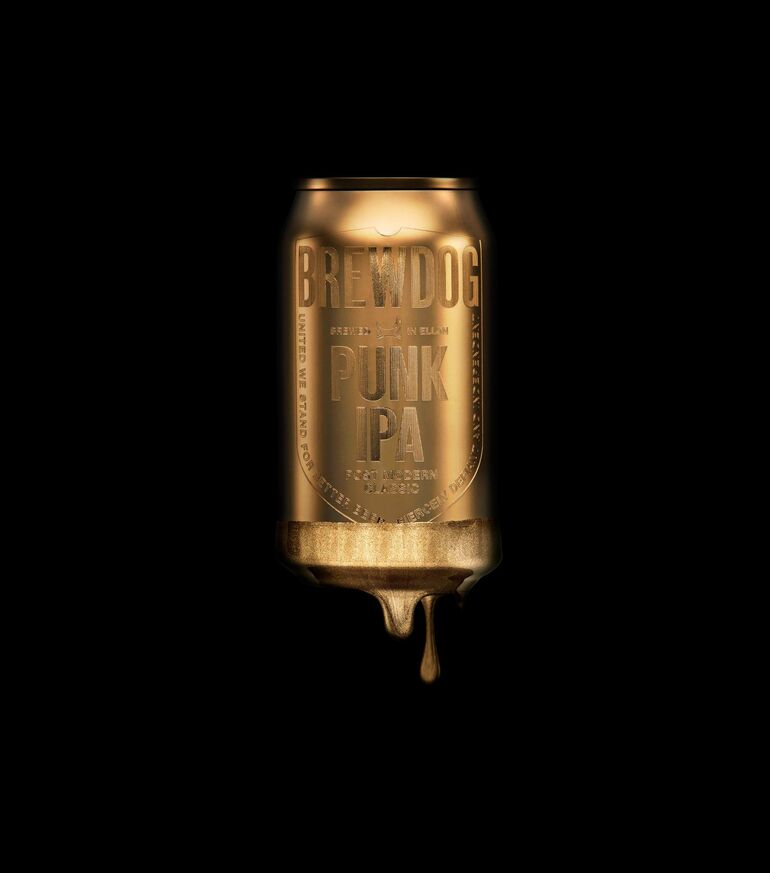Start 14-Day Trial Subscription
*No credit card required

The Curious Case of the “Solid Gold” Beer Can
When BrewDog announced their brand-new competition, sales went through the roof. Beer fans stockpiled the brand’s famous Punk brand in the hope of finding a precious ‘solid-gold beer can’ - the main prize, said to be worth £15,000. The lucky winner would also get £10,000-worth of shares in the Scottish beer giant and a VIP tour of its brewery in Aberdeenshire, Scotland.
Yet when one fan landed the precious artefact in June this year, it wasn’t quite what he, or anyone else expected – apart from BrewDog, perhaps.
Brewdog’s special campaign
Promotional offers from companies are nothing new, of course. McDonalds has had several of its legendary Monopoly campaigns, which it recently announced would come back this year, where fast food regulars buy meals to get their hands on hundreds of potential prizes. In the gambling world, sports betting companies offer free bets and online casinos award welcome bonuses to new customers. However, Brewdog’s campaign stood out.
When a successful company offers you free shares, especially to the tune of £10,000, you tend to sit up and take notice. In BrewDog’s case, it’s especially tempting after the company bounced back from pre-pandemic losses to make a profit of £1.1 million in 2020. A major factor behind this has been a boom in online sales as people spend more time at home, and the company expects to record further growth over the next few years.
The brewery tour is also a treat for craft beer fans. Known as ‘The DogWalk’, it takes visitors through the original brewhouse, distillery and the ‘canning line’, where the beer gets poured into the cans.
However, the jewel in the crown of the campaign was the so-called ‘solid gold can’, a 330ml container that the company claimed was worth up to £15,000 based on its weight. They created 50 of them, which they included in random packs of their flagship brand Punk IPA and announced the promotion across several social media platforms at the end of 2020.
Yet despite the big media push, not everything was what it seemed.
The real can
If you’re interested in trading, you might keep track of the gold price from time to time. Had you checked in November 2020, then you’d have seen that the price per ounce was around £1,400.
If a solid gold, yet hollow, 330ml Brewdog can, as advertised by the company, weighs in at around eight ounces, then its value would come in at around £11,200, instead of £15,000.
Mark Craig heard a similar story from gold traders when he sounded them out for a price check. The reason? He’d just won one of the special cans and wanted to know its value: he had plans to pay for his wedding, after all.
Unfortunately, it didn’t stop there. When Craig received a certificate from Brewdog confirming his prize, he found out that the can was merely coated with a gold plating three microns, or 3/1000s of a centimetre, thick. The rest of the can was made from brass, a much cheaper material.
When contacted, the company were initially reluctant to talk with Craig about the issue, but when he went to the Scottish Sun who reported the story, they began to respond. A spokesperson said that the valuation was ‘based on multiple factors, including manufacturing price and the rarity of the cans’, but the company removed the mentions of ‘solid gold’ from its marketing after they couldn’t prove the object’s market value.
BrewDog’s other controversies
The case of the ‘solid gold can’ is not the first time BrewDog has made the headlines for the wrong reasons. Its marketing campaigns are known for provoking strong reactions – in 2018, critics accused the company of using gender inequality as a publicity stunt with its brand of pink ‘beer for girls’.
Three years earlier, its No Label brand, launched to champion inclusivity of the LGBTQI+ community also came under fire. BrewDog’s statement referred to the beer that was ‘brewed with hops that have changed sex from female to male flowers prior to harvest’, saying that beer could be ‘whatever the hell it wants to be, just like humans’. Stonewall, a leading LGBT rights charity, said the campaign undermined many elements of the trans community.
BrewDog’s latest PR fail doesn’t quite fall into the same category, but mis-selling a ‘solid gold’ can could hurt consumers’ faith in the brand.
Other failed promo campaigns
BrewDog has plenty of competition when it comes to PR disasters – in fact, compared to some, it looks tiny in comparison.
In 2017, Pepsi faced a tsunami of criticism after it paid reality TV star Kendall Jenner to turn up at a Black Lives Matter rally and hand out free cans of the soft drink. The move was criticized for showing a white celebrity in a position of privilege acting as the peacemaker in a sensitive political issue.
Last year, sandwich giant Subway was hit by an Irish court ruling that its bread contained too much sugar to be legally classed as ‘bread’. Food experts compared it to eating spoonfuls of sugar, however the company aggressively fought the ruling.
Aside from the criticism and potential legal costs, there is a certain ironic aspect to these controversial events for big businesses – publicity. In an age consumed by social media and the act of being noticed, companies like BrewDog might actually find that being in the spotlight helps their sales – even after episodes like the curious case of the solid gold beer can.



